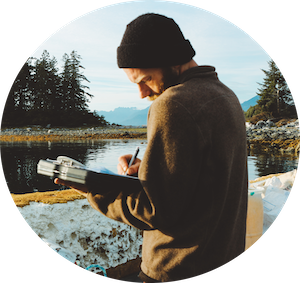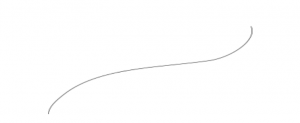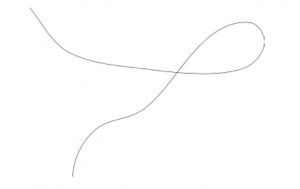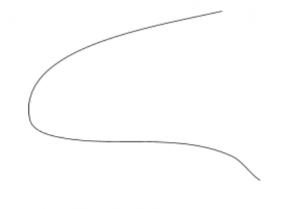Creative Non-Fiction by Lyndsey Bryden
Here’s a couple facts about my time in grade five.
- My teacher Mr. Feeley was an OG, sandal-wearing, hippie-generation rock climber who spent the year teaching the class about veganism between lessons on Pythagoras and chess.
- We watched a documentary in class on how climate change was happening because too many people eat meat and nobody wants to talk about it!
- I wanted to help.
And so with these three nuggets of information churning in my eleven-year-old brain, I decided I was gonna go vegan for the planet. That night my mom supportively bought me a package of tube-like TVP sausages, a meal I remember vividly because I was focused on the gorgeously shiny sausages the rest of my family was eating. To nobody’s surprise but my own, the change didn’t stick. Over the years I’ve enthusiastically embarked on a new dietary journey for the benefit of the planet at least a dozen times. Pescatarian, vegetarian, no red meat, fully vegan…each of these seemed like the perfect way to finally make a change. To make a difference. And there were occasional longer episodes of success, of course. But it never truly stuck.
I think the greatest success amongst a crop of unimpressive successes was when I stopped drinking milk. I feel the need to emphasize that I grew up drinking a truly astounding amount of milk. Like, ‘Mac and I would finish a 4L jug in a day’ amounts of milk. At some point I realized that even if I didn’t go fully vegan, switching to plant milk was an easy way I could make my diet more climate-friendly. So I asked my mom to start buying different types of plant milks, and tried them out until I settled on something I liked – Silk Soy Original, in the red carton. And the change stuck! For a long time. No more cow’s milk, except on the four-times-per-year special occasion of a glass after a slice of chocolate birthday cake. This went on for a while – at least three years.
But eventually, I started drinking milk again. I can’t pinpoint the exact reason. Learning about the dairy industry in one of my second year classes was definitely a factor. I had mentally prepared for the class to turn me off milk completely. But surprisingly, when our examination of the BC Dairy system was complete, I actually had a more positive perception. Whether that was because of what we’d learned or what I’d wanted to hear, I don’t know. The rest of the reasons are less concrete, less about what I was learning. It’s an easy way to get protein and calories, which as an athlete I desperately needed. It’s a nostalgic drink from my childhood. I like how it tastes – a hot take, I know. So I started drinking milk again. Yet another failed pass at a permanent dietary change – perhaps another failure for the climate.
Learning about the environment, where we’ve been and where we’re headed has been is a double edged sword. Because knowledge is power, don’t get me wrong. But it is so easy to become jaded. To feel like we’re going nowhere. To feel absolutely powerless. Because in university we’re taught that at the end of the day, taking action against climate change depends on legislative change to eliminate fossil fuels. And legislative change depends on creating a monumental tide of political will. Reading those words on the page, I know there is power there, for me and for all of us. But there’s also a grumbly Voice in my head muttering about how in the end, what’s on my plate matters a lot less than what’s on the legislative docket. I don’t really know why I’ve never been able to stay vegan. But I do know that the reason I’m at peace with my meat-eating is because of that Voice and the point it makes.
There were certain obstacles that popped up as I tried to lower my dietary carbon footprint. One was when I gave myself an iron deficiency after cutting red meat from my diet. My mom took me for a blood test after a particularly abysmal cross country season. I was sixtieth in the city next to my little brother’s second – ouch. I was diagnosed with iron deficiency to the tune of “This reading should be within 40-200, but you’re at a 3!”. Oops! Nobody ever told me vegans need to take iron pills. As an athlete, I was secretly happy, since I could blame that fall’s race results on my apparent inability to transport oxygen. As a longtime wannabe herbivore, I was demoralized, because this time it had felt like a change that was going to stick. Nevertheless, the entire fiasco shut the door on my red meat-less diet attempt. But in the back of my head, at least I had reassurance from the Voice. Nice try kid. Not to worry, this won’t change a thing. It’s not like it would’ve make a difference anyway.
It’s an interesting question. Do I feel guilty that I’m not plant-based? That I drink milk again, and occasionally go for a burger? Yes and no.
“ExxonMobil doesn’t give a shit how much tofu you eat.”
It’s the jaded Voice, and it’s trying to let me off the hook. But I’ve been trying to hook myself back on for a decade now. I don’t think I can say I’ve always given it my best shot. But I’m still shooting. Still trying to figure things out. And just like in grade five, I still want to help.
Learning about the systemic nature of the climate crisis has made me think beyond what I can change myself and more about how change can happen across the board. Sometimes I wonder if the Voice’s whole argument is just about making excuses, but I’m not sure it’s that simple. I think we all know the real answer is individual and collective change have to go hand in hand. Each is necessary. But unpacking my feelings about this has been like untangling rubbery wired earphones – it only seems to get more complicated. I don’t have a cleanly packaged answer. I wish I could say I did. I think I will in the future. A plant-based diet is something I aspire to, but I don’t beat myself up for not being there. I’d like to think I’ll get there eventually. Maybe for a couple years at a time. Maybe forever. Check back in twenty years.






